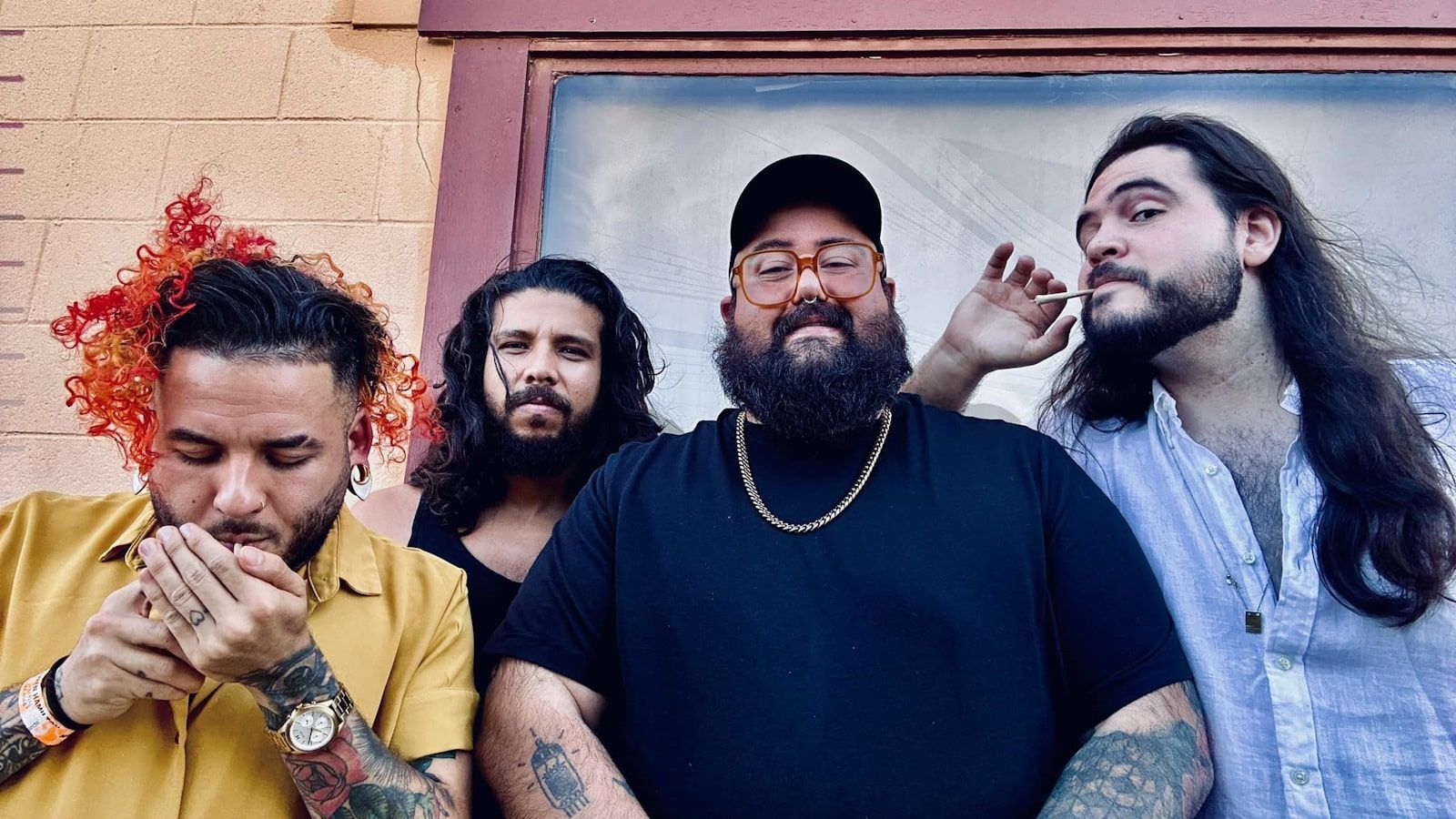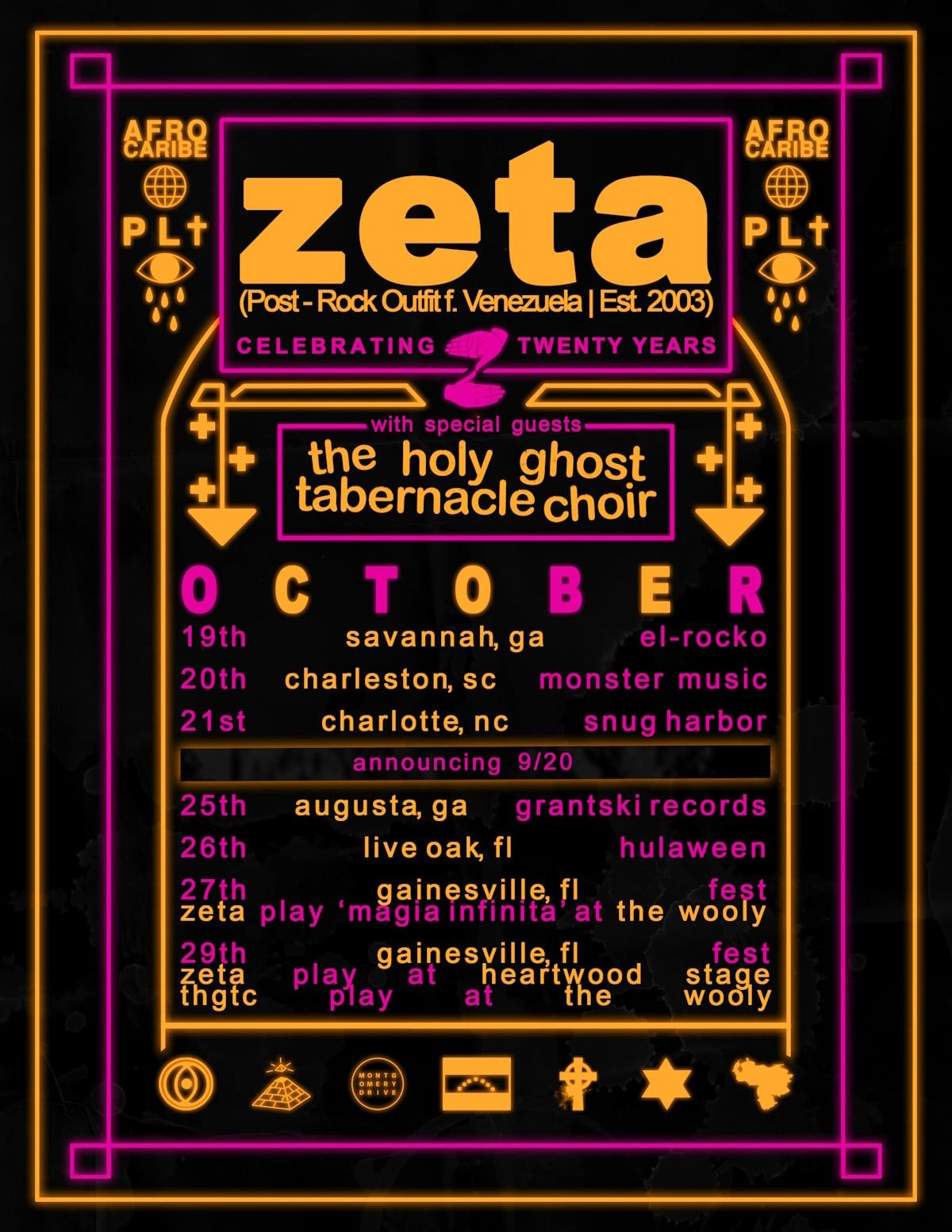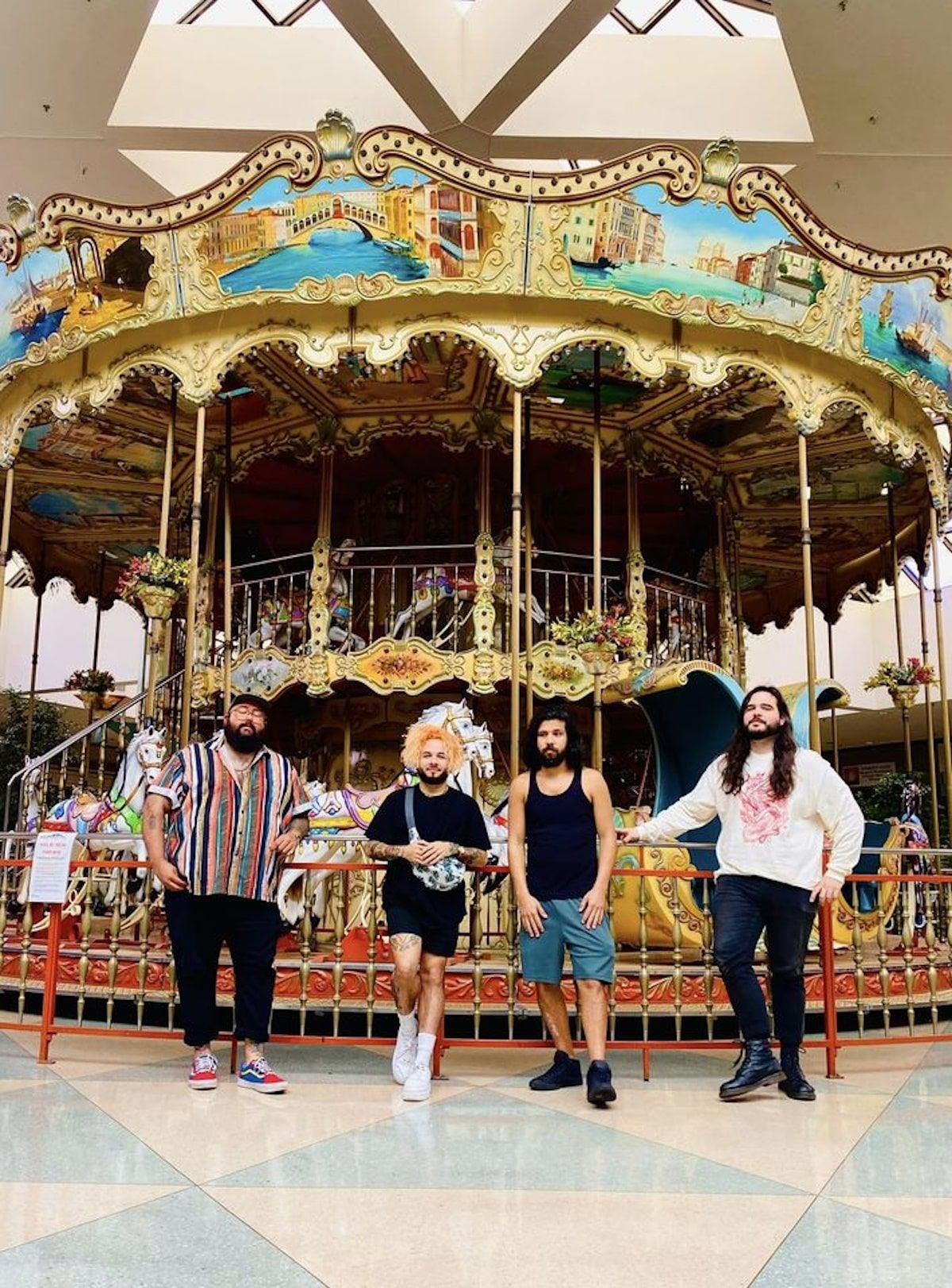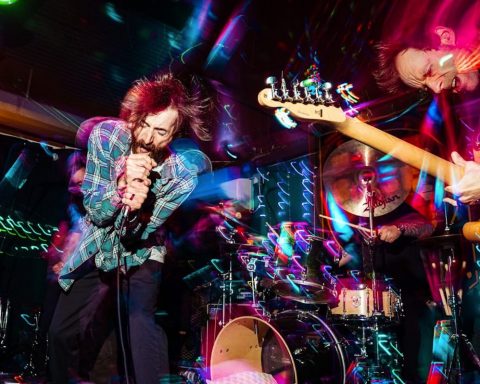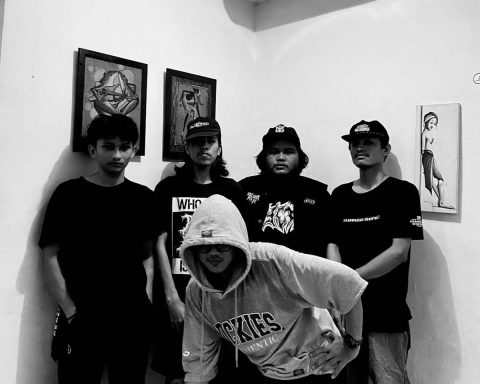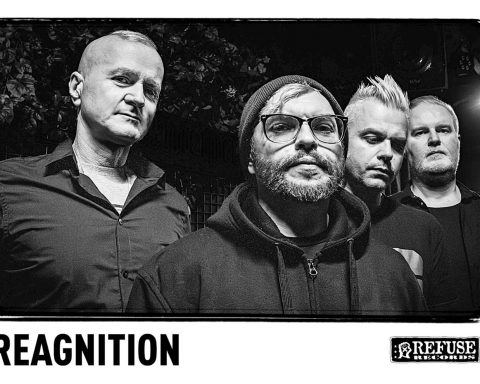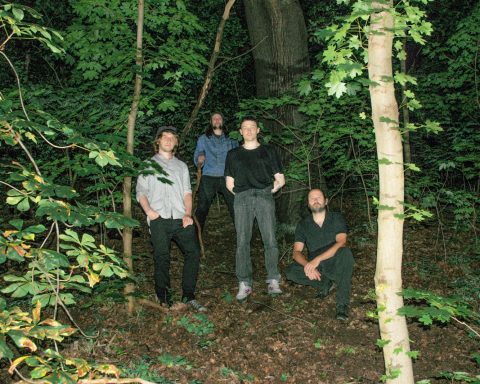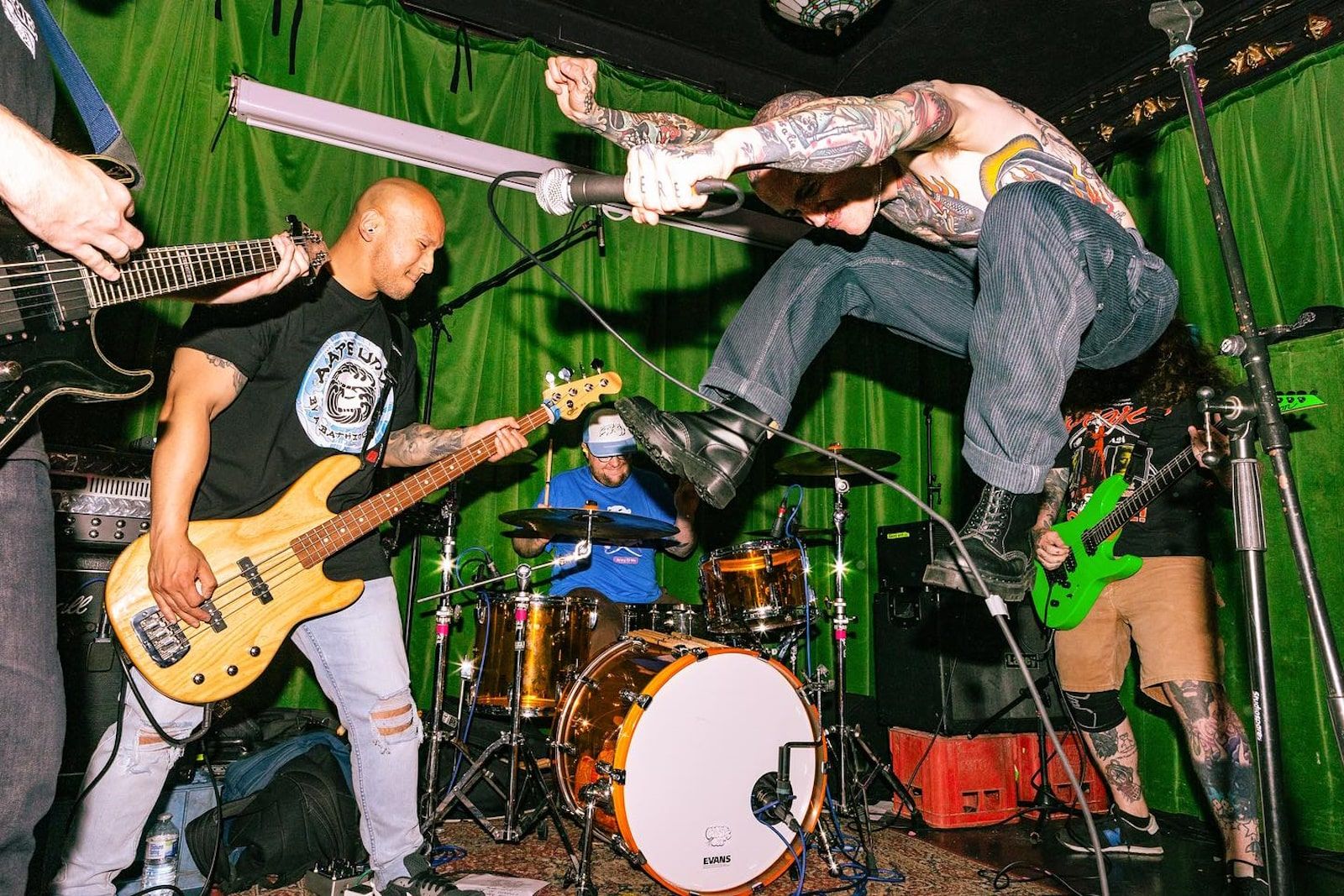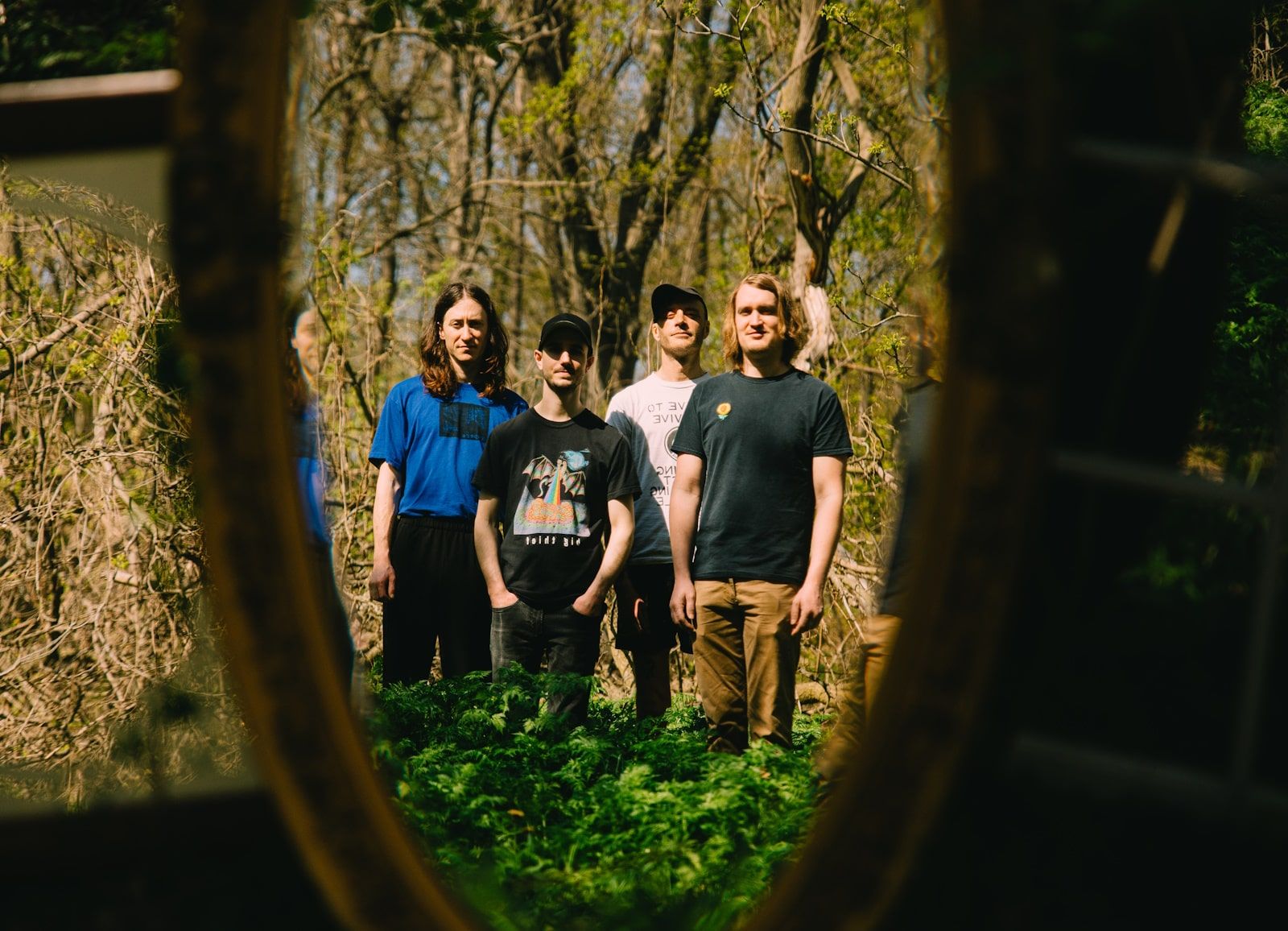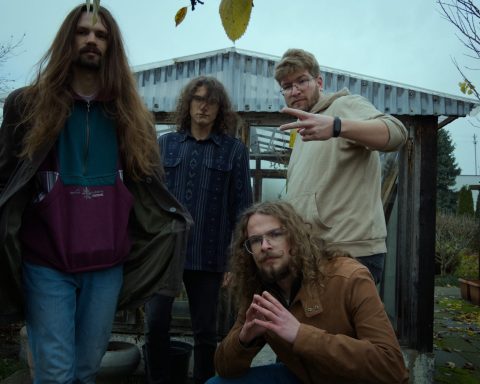It’s a poetic cosmic dance, really — how the universe strings together different timelines, geographies, and social fabrics, making them intersect at fascinating nodes called music. One such peculiar conjunction has birthed ZETA, a Venezuela-originated band now residing in the U.S., treading the fine line between post-rock and post-hardcore with an ethnic twist.
Not just a band but a phenomenon, ZETA’s 20-year long journey is marked by moments that make even time pause and listen.
Having opened for names like The Fall of Troy and Geoff Rickly, and making the rounds through an ardent series of tours this year, they have announced a ten-day stint with Georgia-based mathcore ensemble The Holy Ghost Tabernacle Choir (featured on IDIOTEQ earlier this year). Each stop — be it Savannah or Gainesville’s FEST — is not just a location but a chapter in an ever-evolving story.
During my tête-à-tête with the band, what became vivid was the profound influence of immigration on their musical ethos. Venezuelan rhythms, entwined with post-hardcore intensity, serve as a language, narrating tales of migration and identity.
Songs that blend languages are not mere tracks but anthems of unity and equality. Hand-drums, as they stated, are no longer auxiliary but core to their music, serving a dual purpose of being “medicine” and “an homage to their roots.”
“Music is an essential way for us to express our identity, another way of telling our story that sometimes is deeper than words,” notes ZETA.
Their music has a unique way of dissolving the barriers of dogma and prejudice, turning the performing space into an ephemeral home. This is a band that transcends the limitations of language and regionalism, as indicated by their dedication to bridging cultural divides, particularly in these polarized times.
“By the time we get to that part of the set where we all play percussion at the same time, everyone in the band is connected to one big heartbeat. It feels like literally traveling, almost otherworldly,” they shared during our conversation (see the full, in-depth interview with the band’s Juan Chi below).
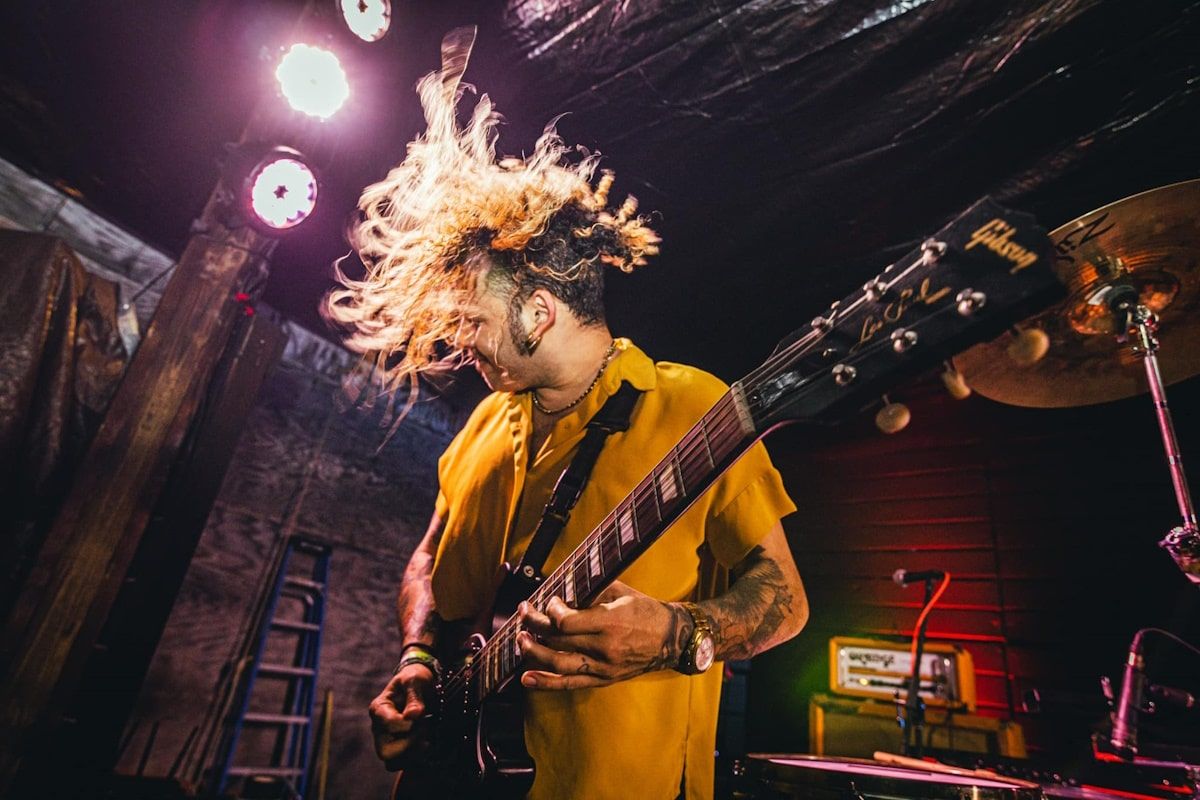
For ZETA, the upcoming tour is more than an anniversary celebration; it’s an epitome of friendship, shared both with each other and with their touring mates, The Holy Ghost Tabernacle Choir.
The decision to collaborate on this particular journey was sparked not by a commercial goal but by mutual respect and the familial warmth shared between the bands. It becomes a testimony that music is more than chords and lyrics; it’s relationships and experiences, which ZETA admits have been enriched through their collaborations with various artists.
ZETA’s openness in their musical arrangements, highlighted in our discussion, elucidates the democratic nature of their artistry. From deciding who will handle a specific instrument to acknowledging each other’s musical paths, they operate as a collective mind, ensuring that every performance is a finely-tuned experience.
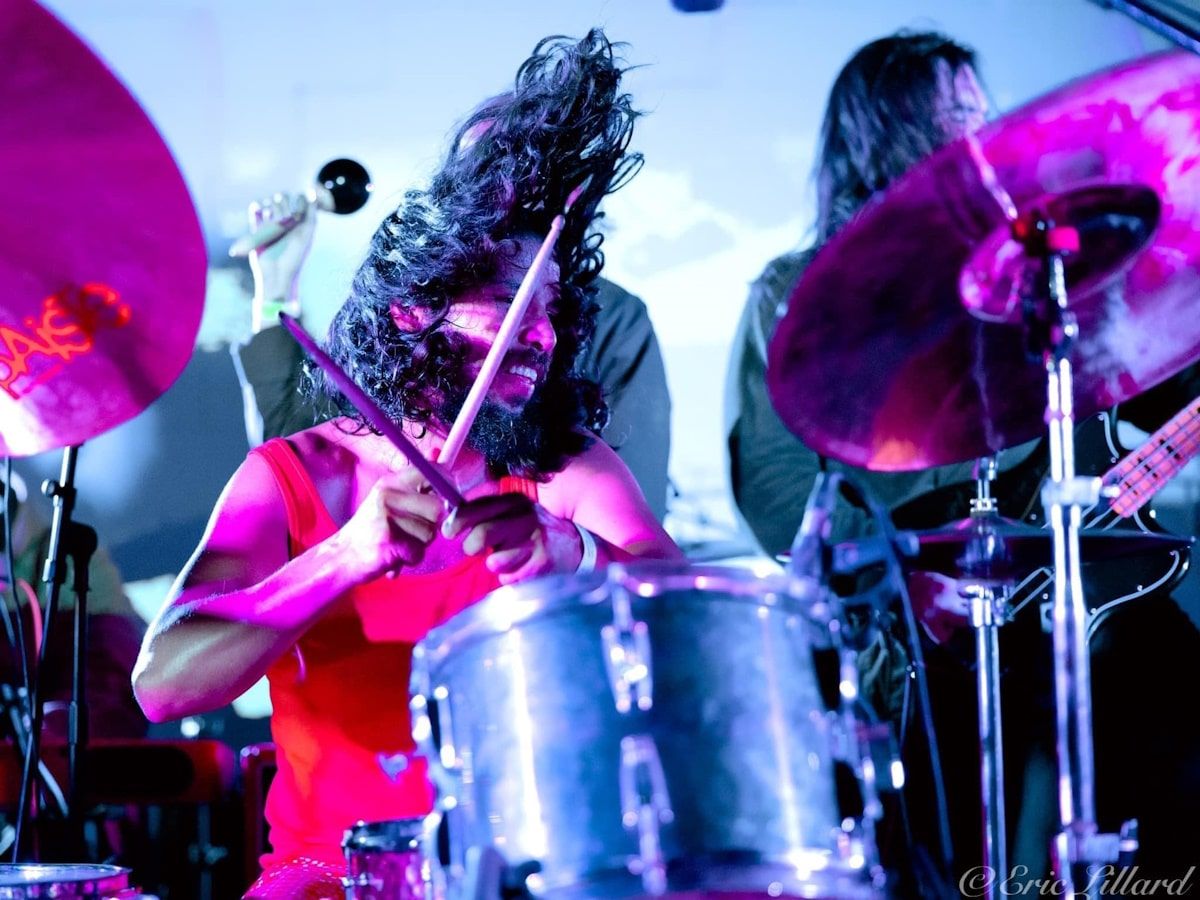
The bands are also hinting at a split release, revisiting their old tracks, further enriching the tapestry of their respective musical histories. “Keep an eye out,” they tease, leaving us yearning for what’s next in their twenty-year-old musical odyssey.
In the ever-changing landscape of music where genres blend, cultures meet, and traditional borders are crossed, ZETA stands as a vivid example of what the art form can offer — a boundless world where everyone can feel at home. And in doing so, they encapsulate the essence of what music, in its purest form, can be — a universal homecoming.
Catch ZETA and The Holy Ghost Tabernacle Choir live at the following stops:
Thursday, October 19 – Savannah, GA @ El-Rocko Lounge
Friday, October 20 – Charleston, SC @ Monster Music and Movies
Saturday, October 21 – Charlotte, NC @ Snug Harbor
Wednesday, October 25 – Augusta, GA @ Grantski Records
Thursday, October 26 – Live Oak, FL @ Hulaween (ZETA only)
Friday, October 27 – Gainesville, FL @ FEST (ZETA perform at The Wooly)
Sunday, October 29 – Gainesville, FL @ FEST (ZETA perform at Heartwood Stage, THGTC perform at The Wooly)
As a band that originated in Venezuela but has been based in the U.S. for several years now, how do you feel the migration experience has influenced your musical and lyrical themes?
Immigration have been a major motive behind our music and lyrics because is one of the major occurrences in our lives since we moved out from our country. Sometimes indirectly and some others even more frontal. example the lyrics for the song El Canto De La Victoria: “somos la luz de todos tus días, si nos juntamos ya no somos minoría”, or the song Afrontar “el tiempo y el espacio ya no son necesarios, tranquila, algún día regresarás”.
Migrating affected our sound too. it opened an infinite window to explore traditional music from our culture. Mainly the rhythms used in our songs, music is an essential way for us to express our identity, another way of telling our story that sometimes is deeper than words.
After migrating from Venezuela Hand-drums became one of the cornerstones of our sound. The rhythms we perform are often used to honor our culture. And in a metaphorical way it can feel like medicine we are giving to ourselves and to the people who connect with our music. To heal, to transform, to connect with the present and vibe.
Given your background, how do you see your music bridging cultural divides, especially in the current polarized climate?
I’ll answer this question with my heart on a sleeve. For me, the music that we play feels so powerful, specially live, by the time we are in our highest peak in our performance I can feel all dogmas and all mind barriers disappearing, and touching again in the hand-drums thing, I think by the time we get to that part of the set that we all play percussion at the same time, everyone in the band is connected to a big one heartbeat we are one (I know it sound hella corny) but is like there’s no time, and the place starts transforming, feels like literally traveling, almost otherworldly, that’s my full hearted personal opinion, and I like to think the people who get to connect with us get to experienced the same in some level.
To quote my dear friend Andy from Poolkids/Dikembe we are having multiple “outta body” experiences during our live sets, and I think that allowed us to connect to a more vulnerable, more raw version of our selves, one will say I can be fully me, just like when I’m at home.
And our music is all about feeling at home and we want to try to take you home with our music, if you know what I mean
You’re commemorating your 20th anniversary with a ten-day tour alongside The Holy Ghost Tabernacle Choir. How does it feel to hit such a milestone and what made you decide on this particular collaboration for the tour?
Me (Juanchi) and Dani started this project back in high-school when we were teenagers, to be able to be standing here today and celebrating the 20 years of a friendship promise is amazing, the most stable relationship I have had in my entire life.
The Holy Ghost is perfect to celebrate and play together because:
A) they are amazing and they rule.
B) they have been the best to us and have open their hearts like only family do.
C) some bands won’t take badass bands on their tour cause of the fear of being overshadowed, for us is quite the opposite, we want to curate the best and the most unique experience every night so a band as powerful as THGTC is a no brainer to bring on tour.
You’ve opened for various bands like The Fall of Troy, Sparta, and Geoff Rickly. How have these experiences and relationships shaped ZETA’s musical journey?
They have been all wonderful, re-assuring, kind and sweet to us. Plus they have exposed our music to many of their fans with great results and success, and playing with them every night we get to learn all the tricks from the very best at the craft.
These experiences have been so rich to each one of us. There’s definitely a before and after these tours.
We are forever honored to have had the opportunity of sharing stage with all of them amazing artists and we will always cherish these memories.
Your music is lauded for incorporating Latin influences, psychedelic elements, and post-hardcore intensity. What guides your decisions on which auxiliary instruments to incorporate into your songs?
We have been very good at communicating our ideas inside of the band, the vision behind the parts of the songs, we have learned from the hand-drumming how to lead and follow in different musical paths, and it happens very naturally, some one will feel more elevated with a certain part of a song and claim it subtly with a musical arrangement in the writing process, and normally that person will chose with which instrument, or who is performing that particular phrase, also if the arrangement is meant as lead or as a company, we are all putting a lot of love into the craft like proud creators of a musical piece, so is important to be all in the same page with the word instrumentation, and the composition it self.
Could you dissect one of your tracks that best embodies your unique blend of influences, and explain the thought process that went into its creation?
Completar is an interesting song to dive into,
It starts with a lot of heavy drumming not far from a samba rhythm root, but played with the angst the song needs.
The second part goes into probably one of the most post hardcore passages we have written, with two different vocals screaming very existencial lyrics that are meant to express to the person hearing that every time they feel like giving up, take a moment to remember how difficult times have make you stronger and how getting stocked won’t help, essentially embracing the growth.
Then it goes to a new section of the song and the groove invades the track, it’s instrumental for a good amount of time, proggy like with guitar Melodys that guide the trip into a bridge that resolve on a heavy dub sounding section, with lyrics quoting Manu Chao’s “El viento viene, el viento se va (por la carretera) el hambre viene, el hombre se va (por la carretera)”.
To finish with the return of the post hardcore beat this time around quoting “El Ciclo” from Ricardo Pita (Ecuadorian Song Writer) “todo nace, crece, se desenvuelve y muere” as way of closing the narrative, meaning everything is a circle and we will have to embrace growing many times, all the time in life.
The treatment of the vocals in each part is very different and processed, there’s delays everywhere, the drums are intense and change dynamics a lot.
Is a fun piece with a lot of movement and eclectic fusion of styles.
I think that’s a good song to start exploring our sound, and is a song that we try to play live almost in every show.
You have songs that deliver messages in multiple languages. How important is linguistic diversity in conveying your messages of unity and equality?
The decision behind the languages have been taken more aesthetically than anything else, but it adds emphasis to our expression and it helps to embrace our exploration of different styles and cultures.
With songs that “feel like what home should be,” how do you construct a setlist that balances both the emotional weight and the energetic drive of your music?
Just like writing new songs for an album, every live set we’ve played we have curated to be a unique experience, the dynamics help connecting the musical passages and the trip is personal for everyone listening. Is a full landscape, with different velocity, volume, tempo, and scales. So for me all that movement helps balancing the emotional intensity with the groovy elements.
In your years in the U.S., you’ve built strong connections with the DIY and punk scenes. How do you see these communities evolving, particularly in the Southeast where your upcoming tour focuses?
Every year the community of independent music, particularly in this side of the country feels like is constantly growing. More and more bands are getting recognized, National acts are taking more DiY bands as support, and there’s so many amazing talented artist, so many unique sounding projects. Honestly I feel like is a great time to be part of this community. And not just in southeast but all of the US
Are there any differences you’ve noticed between the Venezuelan and American underground music scenes that have surprised you?
There’s both differences and similarities that have surprised me.
I think the major difference is how organized the underground scenes are here, US is a gigantic country and touring is somewhat part of the culture and knowledge of the people living here (compared to Latin America, or Venezuela). Down there touring culture is still very young, is an idea that not many people consider to be possible.
But then the biggest similarity i have experienced is that people are expressing the same ideas, talking about the same struggles, like branches from the same tree, is beautiful how music and ideals manifest into the mind of creative people, sort of all connected feeling and thinking about the same things at the same time, to me that’s amazing.
With the upcoming split release celebrating your tour and FEST in Gainesville, what guided your choice in revisiting an older song from your catalog?
The idea kind of manifested in our minds naturally, this year being our 20th opened a window to look back at all of the different moments of our career, it opened us to the nostalgia of the times before. Then Tony from The Fest suggested doing a full “Magia Infinita” set during fest, and we loved the idea so much it took the train of thought to the “what if we re visit this older album and re record it again”, this time with the line up we currently have, sounding how these songs sound after touring them for years, and Completar (the song for the split) is the perfect opener to what is going to be “Magia Infinita” 2024 revisited version.
The way we look at it is there’s no rules dictating how to release the next thing, there’s plenty of artist that had re visited older albums one way or another, Touché Amoré with “Dead Horse X” or Converge with “You Fail Me Redux”.
When we first released the Magia Infinita album we where in the process of moving to USA and the first years of an immigrant are so rough we couldn’t really give the love and the energy this release needed in that time, so having the opportunity of re releasing this material is really special for us.
The Holy Ghost Tabernacle Choir, your tour mates, have been touring extensively in their first year. What advice would you give to them or other up-and-coming bands seeking to balance life on the road with maintaining creative momentum?
I think they are doing amazing, I don’t know that I have an advice for them about how to do the thing better, but I will say something that I do all the time is remind my self why I started doing this in the first place, re visit that feeling that first got you here and retrace your steps every time you can, it helps when ever feeling tired o burnt out from the travels.
How does ZETA handle the juxtaposition of frenetic exuberance with the incorporation of traditional Latin beats like salsa and samba?
Latin and afro beats can seem very far from punk and chaotic music from a marketed point of view, they normally appeal to different groups of people but they are very similar in terms of energy and dynamics, for us growing up in Latin America it makes the most of sense, is all part of the soundtrack of our lives. even from a social point of view, they are the music of revolution, there’s counterculture present in the ideas exposed by the old timers of salsa, samba, hand drums music in general, those are the anti system artists of our communities.
Lastly, your music is praised for being genre-defying. How do you plan to push these boundaries further as you move into your third decade as a band?
We are very passionate of going outside of the comfort zone when writing new music so I’ll say we will be pushing boundaries by keep on exploring more musical avenues of styles that challenge us, keep on making music with our hearts. hopefully Zeta will see many more years of touring and music production coming ahead.
Thank you again for your time and questions.
This was a lot of fun!



